
Oftentimes, body language allows us to express our thoughts and feelings more effectively than words can. Each country has its own set of body postures, hand gestures, facial expressions, and different physical movements—each one conveying its own nuanced meaning. Since gestures can be funny, positive, neutral, or even rude, it’s important to have a solid understanding of a culture’s body language before trying to use it yourself!
If you plan on visiting Bulgaria, becoming familiar with the most common Bulgarian gestures is just as important as learning the language. Doing so will help you avoid accidentally offending someone, equip you with the knowledge you need to immerse yourself in the culture, and allow you to better understand what a native speaker is saying (even if you don’t know all the words they’re using).
So, how can you understand the hidden message that your Bulgarian interlocutor is trying to convey through body language?
In this comprehensive guide to Bulgarian body gestures, BulgarianPod101 will answer all your questions. We’ve compiled a list of the most important gestures and expressions, along with detailed explanations of what they mean and when it’s appropriate to use them. We’ve also included a short practical test at the end to help you practice what you’ve learned.
Take it to the next level and start enjoying nonverbal communication in Bulgaria!
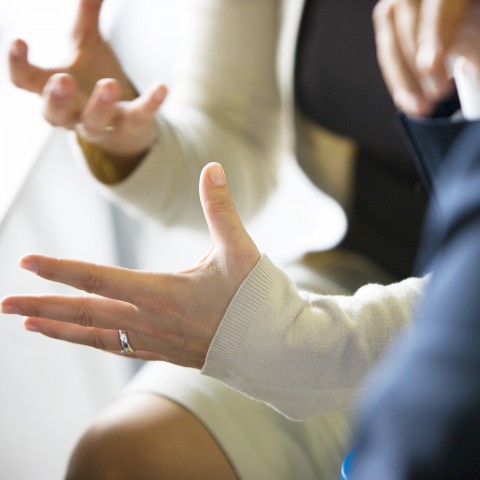
 Table of Contents
Table of Contents
- Body Postures
- Hand Gestures
- Facial Expressions
- Different Physical Movements
- Let’s Practice
- How BulgarianPod101 Can Help You Learn Bulgarian
- Answers to Practical Exercise
1. Body Postures
1 – I don’t know.
Meaning: “I don’t know.” / “I have no idea.”
How to do:
Raise and lower your shoulders. This body posture is usually accompanied by a facial expression of puzzlement, which includes raising your brows and clenching your mouth with the edges down. The facial expression is done while the shoulders are up. At the same time, the forearms are raised slightly upwards with the palms open.
Connotation: Funny
Where / When:
Imagine that someone has lost something and asks you whether you’ve seen it. If you don’t know, you could simply answer using this posture.
Example:
Your husband has to go to work, but he can’t find the car keys. He may ask you:
- Виждала ли си ми ключовете за колата?
Vizhdala li si mi klyuchovete za kolata?
“Have you seen my car keys?”
And when he looks at you, you could make this posture:
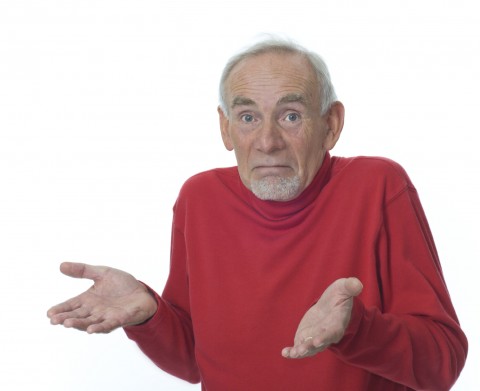
Note: Keep in mind that this is an informal body posture that may not be appropriate for serious situations. For example, if your husband is stressed because he’s late for work, he may find this posture very annoying. In situations like this, you might want to use one of these Bulgarian phrases instead:
- Не знам. (Ne znam.) – “I don’t know.”
- Нямам идея. (Nyamam ideya.) – “I have no idea.”
- Нямам представа. (Nyamam predstava.) – “I have no clue.”
2 – Defensive posture
Meaning: “I don’t feel comfortable.”
How to do:
Cross your arms across your chest.
Connotation: Negative
Where / When:
This body posture indicates a lack of self-confidence. It closes off or “shields” the front of your body, which gives the message that you do not feel safe enough in the other person’s presence and that you’ve taken a defensive position in the conversation. Another meaning of this posture is that you have something to hide from your interlocutor.
Example:
Your child comes home after having a terrible day at school—he had an argument with his best friend and got a bad grade in math. When you ask him how his day was, he may answer “so-so” while making this defensive body posture. If so, you may understand that something negative has happened to him but that he feels uncomfortable talking about it.
- Горе-долу (Gore-dolu) – “So-so”

3 – Hiding posture
Meaning: “I am shy.” / “I’m embarrassed.”
How to do:
Place an object in front of your body while speaking with your interlocutor.
Connotation: Negative
Where / When:
It’s typical for people who are shy to try hiding behind an object. This shows their resistance to engage in the conversation, so it could be considered a negative body posture.
Example:
People who are more reserved or anxious may place a desk, a book, a laptop, or another object between themselves and the audience when speaking in a business meeting or business seminar. However, this shows a lack of confidence and gives the audience a negative impression of the speaker.
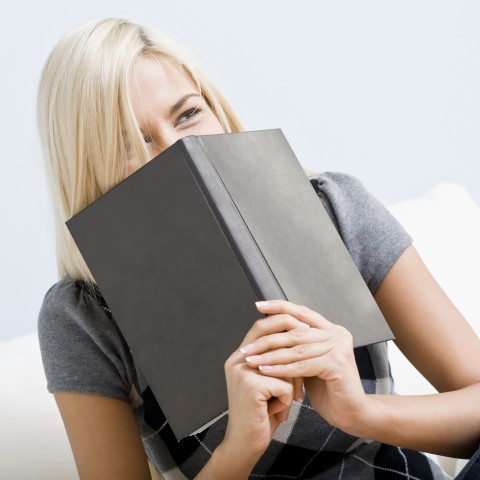
4 – Getting too close
Meaning: “I am too familiar with you.”
How to do:
Get too close to your interlocutor during the conversation.
Connotation: Offensive
Where / When:
While you want to be friendly during a conversation, your interlocutor might think it’s rude to invade their personal bubble; if you do this, it will make them feel very uncomfortable.
Note: Keep an appropriate distance of at least four feet (1.2 meters) from the person, unless they’re a close friend.
2. Hand Gestures
1 – Waving hello
Meaning: “Hello.”
How to do:
There are a few ways to make this gesture:
- ➢ Raise your hand above your head and wave by moving it from left to right and vice-versa.
➢ Raise your hand above your head and move your fingers.
➢ Raise your hand above your head with your fingers together and keep it still for a few seconds.
Connotation: Positive / Friendly
Where / When:
If you happen to see a friend or neighbor from a distance, you can simply wave hello to them in case you don’t have time to stop and greet them personally. Then, you can just go on with your errands or chores. Of course, you could also say:
- Здравей. (Zdravey.) – “Hello.”
- Здрасти. (Zdrasti.) – “Hi.”
Note: Keep in mind that these are informal hand gestures, so they would be inappropriate for formal meetings. In addition, the same gestures may be used to say goodbye. You can easily recognize whether someone is waving hello or goodbye based on the situation.
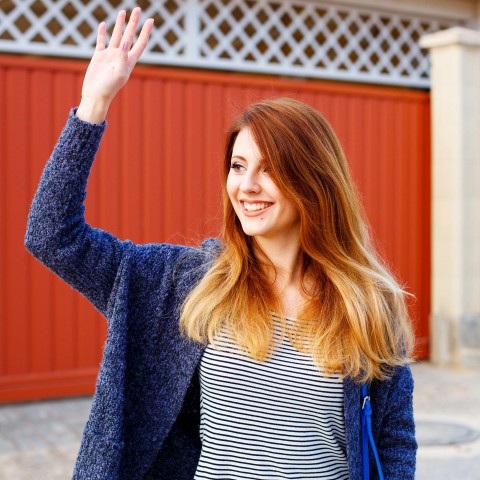
2 – Stop
Meaning: “Stop.”
How to do:
Raise your hand up with your fingers together and keep it still for a few seconds without waving.
Connotation: Negative
Where / When:
This is one of the hand gestures in Bulgaria that’s normally used by policemen trying to stop a car so they can check the driver; it might also be used by traffic controllers. This gesture is usually perceived as an order, so it has a negative connotation.
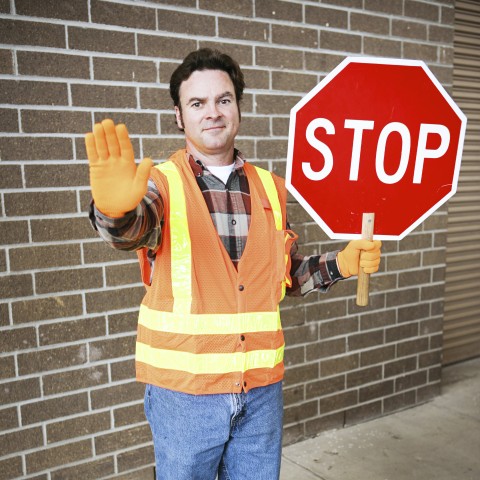
3 – Come here
Meaning: “Come here.”
How to do:
There are two ways to make this gesture:
- ➢ Raise your hand, turn your palm toward you, and fold and unfold your fingers a few times.
➢ Raise your hand, turn your palm toward you, make a fist (leaving the index finger out), and fold and unfold it a few times.
Connotation: Neutral / Rude
Where / When:
The first gesture can be used in any situation when you want to encourage someone to approach you. However, the second one is considered a rude Bulgarian gesture because it usually indicates that the other person has done something wrong and will be scolded.
Example:
Your kid has just broken the window with his ball after you repeated several times that he should not play with the ball in the backyard. You come outside and make the hand gesture for “Come here,” with an index finger. Seeing that gesture, your kid knows that he is in trouble and that a punishment will follow.
4 – Warning
Meaning: “Watch out!”
How to do:
Raise your hand, make a fist (leaving your index finger out), and wag your finger.
Connotation: Rude
Where / When:
This gesture is not appropriate for formal meetings. It’s typically used by a mother or father who wants to warn their child not to continue disobeying. Sometimes, Bulgarians say this while making the gesture:
- Внимавай в картинката! (Vnimavay v kartinkata!)
Literally: “Pay attention to the picture!”
Translated as: “Watch out!”

5 – So-so
Meaning: “So-so” / “More or less”
How to do:
Place your hand in front of you, palm down, and tip it from left to right several times.
Connotation: NeutralHi
Where / When:
This gesture is a common response to the question:
- Как си?
Kak si?
“How are you?”
Instead of answering directly, someone might make this hand gesture. It means: “Not too bad, but not too good either.”
Note: This gesture is only used in casual situations.
6 – Crazy
Meaning: “He/she is crazy.”
How to do:
Rotate your index finger (with your other fingers slightly folded) on your temple.
Connotation:Funny / Rude
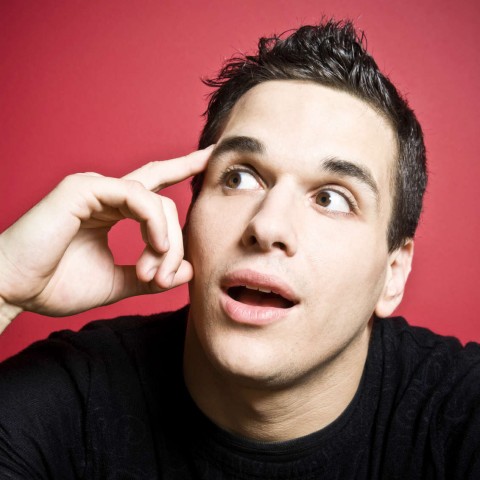
Where / When:
This gesture is very informal and could be really offensive to strangers. You could use it during a casual conversation with a close friend who has a good sense of humor (and who will not perceive the gesture as rude or offensive). It means something along the lines of: “You’re crazy, man,” or “You’re talking nonsense.”
7 – Money
Meaning: “Money”
How to do:
Touch your index and middle fingers with the thumb, and rub them together a few times.
Connotation: Funny
Where / When:
This is an informal hand gesture in Bulgaria that’s usually made when talking about someone who is very rich or to ask about the price of a specific product.
Example:
You see your friend driving a new car and make this funny gesture instead of asking him:
- Колко струва?
Kolko struva?
“How much does it cost?”
Interested in more shopping vocabulary? Then you might enjoy our lesson Shopping at the Dollar Store, where you can hear a short audio clip and read along to improve your comprehension skills.

8 – Shaking hands
Meaning: Good favor; desire for friendship
How to do:
Shake hands with your interlocutor, smile, and make eye contact.
Connotation: Positive
Where / When:
Bulgarian handshakes are brisk and firm, with one or two up-and-down movements while looking the person you’re greeting straight in the eyes. This is a common way to greet an acquaintance you haven’t seen for a long time, though it can also be used when you’re meeting someone for the first time.

9 – Feeling great
Meaning: “It’s going to be great.”
How to do:
Rub your palms together while keeping your fingers straight.
Connotation: Positive
Where / When:
This gesture is usually made when you expect something great to happen pretty soon.
Example:
During a birthday party, the mother announces that she is going to bring a chocolate cake to the kids, and they start rubbing their palms with pleasure.
10 – Pointing (Avoid this one!)
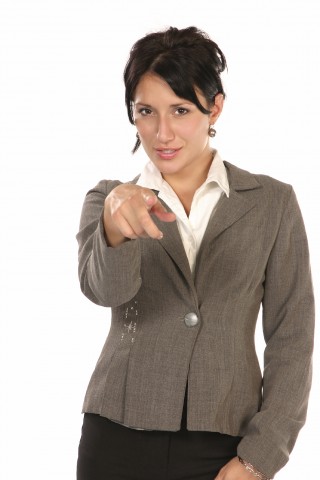
Pointing at someone is considered a rude gesture in Bulgaria. Children are taught not to do this from early childhood, so we consider it an inappropriate gesture for most occasions.
Instead of pointing with your index finger, you should extend your hand with all the fingers in the direction of the intended person, and slightly open your palm upward.
However, you can use your index finger to point to objects. For example, imagine you’re at the market and are choosing from different kinds of apples. If the seller asks you which one you want, you can show them using your finger.
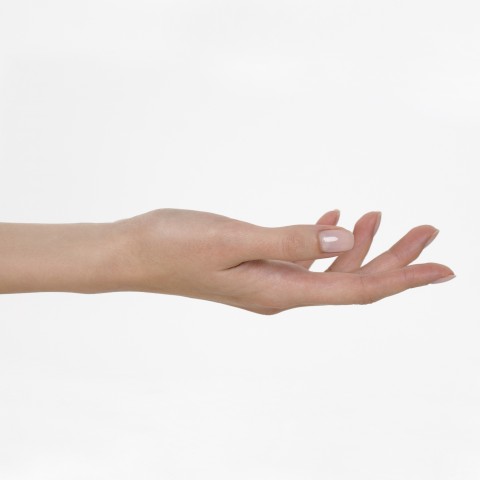
3. Facial Expressions
Do you know what it means when Bulgarians shake their heads? Or how we express astonishment? Keep reading to learn the most important facial expressions in Bulgaria.
1 – Nodding for “Yes” and “No”
Many foreigners find the yes and no gestures of Bulgaria quite confusing because they mean the opposite of what they expect.
- When is it “Yes“? Bulgarians shake their heads slightly from side to side in order to say “yes.”
- When is it “No”? Bulgarians nod for “no.”
Yet, to ensure you understand them correctly, you can ask:
Да или не?
Da ili ne?
“Yes or no?”
2 – Keep quiet
Meaning: “Keep quiet.”
How to do:
Extend your index finger and place it vertically across your mouth. You can also add a “Shhh” when necessary.
Connotation: Neutral
Where / When:
This is among the most common head gestures in Bulgaria, and it’s present in many other countries as well. You might use this gesture if you’re trying to listen to something, but someone is making too much noise.

3 – Astonishment
Meaning: You are very surprised.
How to do:
Raise your eyebrows and open your mouth. This is a natural facial expression we make when feeling genuinely surprised.
Connotation: Euphoric
Where / When:
Keep in mind that Bulgarians love to see the reactions of people when they surprise them. If you show your astonishment, joy, and gratitude for a gift or favor, you’ll make their day.
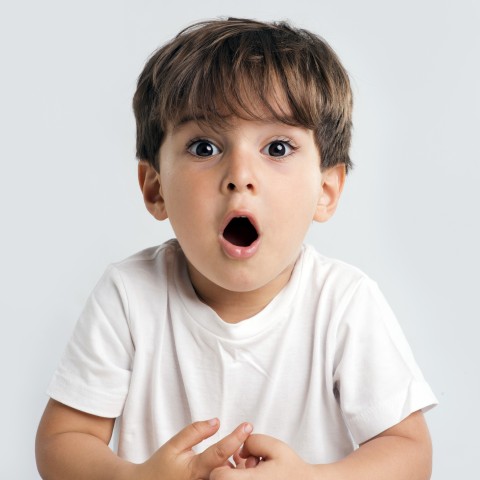
4. Different Physical Movements
Finally, let’s cover a few other gestures in Bulgaria that didn’t quite fit into the other categories.
1 – Being drunk
Meaning: “To be drunk”
How to do:
Place a thumb in front of your mouth and lift up your fist as if you were drinking from a bottle.
Connotation: Funny
Where / When:
This is a funny gesture with which you can show others that someone is drunk or even that you’re already drunk.
Example:
If you’re in company at the table and the host insists on pouring more alcohol for everyone, you could make this gesture to discourage him from doing so.
2 – Goodbye
Meaning: “Goodbye”
How to do:
Pat your interlocutor on the back at the end of the conversation.
Connotation: Funny
Where / When:
Usually, the one who is older pats their younger interlocutor on the back to show him/her their positive feelings and good wishes.
3 – Visual contact
In order to build a sincere and good relationship with your Bulgarian interlocutor, visual contact is very important; if you avoid looking them in the eye, they may think you’re hiding something. Yet, keep in mind that eye contact should not turn into staring—you don’t want to be considered inappropriate or aggressive.
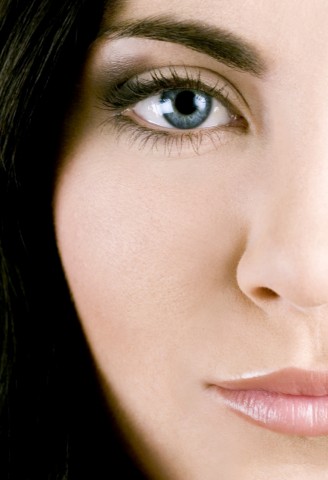
5. Let’s Practice
You’ve learned numerous Bulgarian gestures by now, so it’s time to practice! Choose the correct answers for the following situations, and then check your answers at the end of this article.
- You see your Bulgarian neighbor, who raises up his hand upon seeing you. What does he intend to express?
- a. Stop and don’t go further.
b. Goodbye.
c. Hello.
- Your Bulgarian friend has invited you to go to the cinema. You plan the date and time together, and he starts to rub his hands. What does this mean?
- a. I am cold.
b. It’s going to be perfect.
c. I am not feeling confident.
- You invite your Bulgarian friend to go bungee jumping this weekend. In response, he rotates his index finger on the side of his head. What does this mean?
- a. You’re crazy, man!
b. I have a headache.
c. I am not feeling confident about your proposal.
- You tell your friend that you have just bought a new bike. He rubs his index and middle fingers with his thumb. What does this mean?
- a. That is great!
b. It’s going to be perfect.
c. How much does it cost?
- You’re asking your friend how he is, and he makes a hand gesture with his palm down, tipping it from left to right a few times. What does this mean?
- a. So-so.
b. I am not feeling confident.
c. Hello.
- While you’re talking to someone, you see that he crosses his arms across his chest. What does this mean?
- a. So-so.
b. I am cold.
с. I am not feeling confident.
- You see one of your friends some distance away. He turns his palm toward himself, and then folds and unfolds his fingers a few times. What does this mean?
- a. I am busy.
b. Come here.
с. So-so.
6. How BulgarianPod101 Can Help You Learn Bulgarian
We hope that this comprehensive guide to body language and gestures in Bulgaria will help you level up your skills and communicate more effectively with native speakers. Whether you’re a beginner looking to add some Bulgarian gestures to your conversations or an advanced learner hoping to converse more naturally, the information provided here is a great place to start.
If you enjoyed this article and would like to continue learning with us, create your free lifetime account on BulgarianPod101.com today. We provide our students with a range of learning and study materials, including free vocabulary lists and audio/video lessons for every level. To get the most out of your study time, consider upgrading to Premium PLUS to take advantage of our MyTeacher service—you’ll get to study and practice 1-on-1 with your own personal teacher, who can help you through any difficulties you face while studying Bulgarian.
We would love to hear your feedback about this Bulgarian gestures overview. Did you find it difficult or easy to understand? Do you plan to add some of these Bulgarian hand gestures, body movements, and facial expressions to your daily conversations with Bulgarians? Please don’t hesitate to share your thoughts with us in the comments below.
And now it’s time to check your answers to the practical exercise given above.
7. Answers to Practical Exercise
- You see your Bulgarian neighbor, who raises up his hand upon seeing you. What does he intend to express?
- a. Stop and don’t go further.
b. Goodbye.
c. Hello.
- Your Bulgarian friend has invited you to go to the cinema. You plan the date and time together, and he starts to rub his hands. What does this mean?
- a. I am cold.
b. It’s going to be perfect.
c. I am not feeling confident.
- You invite your Bulgarian friend to go bungee jumping this weekend. In response, he rotates his index finger on the side of his head. What does this mean?
- a. You’re crazy, man!
b. I have a headache.
c. I am not feeling confident about your proposal.
- You tell your friend that you have just bought a new bike. He rubs his index and middle fingers with his thumb. What does this mean?
- a. That is great!
b. It’s going to be perfect.
c. How much does it cost?
- You’re asking your friend how he is, and he makes a hand gesture with his palm down, tipping it from left to right a few times. What does this mean?
- a. So-so.
b. I am not feeling confident.
c. Hello.
- While you’re talking to someone, you see that he crosses his arms across his chest. What does this mean?
- a. So-so.
b. I am cold.
с. I am not feeling confident.
- You see one of your friends some distance away. He turns his palm toward himself, and then folds and unfolds his fingers a few times. What does this mean?
- a. I am busy.
b. Come here.
с. So-so.










